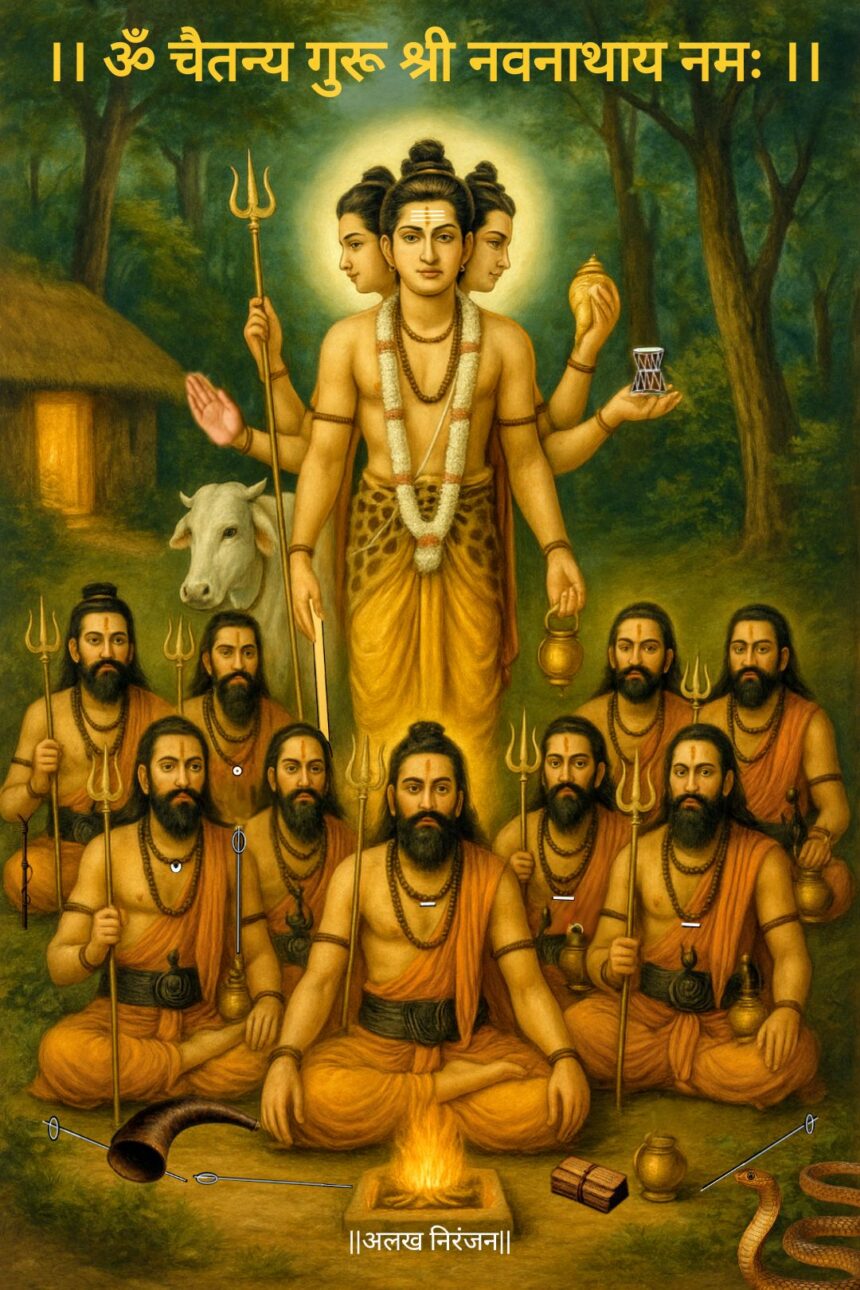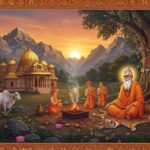12 Inspirational Facts About Indian Gurus That Will Change Your Life
India, often called the land of spiritual wisdom, has been home to great Gurus whose teachings have shaped philosophy, spirituality, ethics, and social life for centuries. Gurus are not just teachers; they are guides, mentors, and beacons of light who lead seekers toward knowledge, self-realization, and inner peace. This article explores the history, fascinating facts, timeline, significance, FAQs, impact on daily life, and societal importance of Indian Gurus, written in a human-friendly and inspiring tone.
History of Indian Gurus
Vedic Tradition: Gurus have existed since the Vedic period (1500–500 BCE), where they guided students in philosophy, ethics, and spiritual practices.
Epic References: Gurus appear in the Ramayana, Mahabharata, and Puranas, mentoring heroes and teaching dharma (righteousness) and wisdom.
Medieval Era: Saints like Adi Shankaracharya, Ramanujacharya, and Chaitanya Mahaprabhu revived spiritual traditions and established monastic centers and learning institutions.
Modern Era: Gurus like Swami Vivekananda, Sri Aurobindo, Paramahansa Yogananda, and Sadhguru Jaggi Vasudev spread Indian wisdom globally.
Role of Gurus: They were not only spiritual teachers but also social reformers, educators, and humanitarian leaders.
Interesting Facts About Indian Gurus
Guides to Spiritual Enlightenment: Gurus help seekers overcome ignorance, fear, and ego.
Global Influence: Many Gurus introduced Indian spirituality, yoga, and meditation to the world.
Centers of Learning: Gurus established ashrams, educational institutions, and spiritual retreats.
Social Reform: Figures like Swami Vivekananda and Mahatma Gandhi combined spiritual wisdom with social activism.
Diverse Teachings: Gurus teach meditation, yoga, Vedanta, Bhakti, mindfulness, and self-discipline.
Role in Festivals: Gurus are celebrated on occasions like Guru Purnima, dedicated to honoring teachers.
Humanitarian Service: Many Gurus actively engage in education, healthcare, environmental protection, and disaster relief.
Spiritual Lineage (Parampara): Gurus often belong to traditions or lineages, passing knowledge across generations.
Personal Transformation: Following a Guru can help an individual gain clarity, purpose, and inner peace.
Symbol of Wisdom and Compassion: Gurus embody knowledge, empathy, and ethical living.
Integration of Science and Spirituality: Modern Gurus often combine ancient wisdom with contemporary science.
Global Pilgrimage: Devotees travel from across the world to meet Gurus for blessings, guidance, and learning.
Timeline of Indian Gurus
Vedic Period (1500–500 BCE): Gurus taught students in hermitages and forest schools.
Epic Era (500 BCE–500 CE): Gurus guided kings, warriors, and sages in spiritual and ethical practices.
Medieval Period (500–1500 CE): Gurus established mathas (monastic centers) and spiritual communities.
Colonial Period (1500–1947): Gurus preserved spiritual traditions and ethical teachings amid social change.
Post-Independence (1947–Present): Gurus promote yoga, meditation, holistic education, and global spirituality.
Significance of Indian Gurus
Spiritual Significance: Gurus guide seekers toward enlightenment, self-realization, and inner peace.
Moral and Ethical Guidance: Gurus teach dharma, truth, compassion, and righteous living.
Personal Growth: Following a Guru enhances discipline, mindfulness, resilience, and purpose.
Cultural Preservation: Gurus help preserve Indian philosophy, rituals, arts, and heritage.
Mental and Physical Wellness: Through yoga, meditation, and mindfulness, Gurus promote holistic well-being.
Societal Influence: Gurus inspire education, charity, social reform, and ethical leadership.
FAQs About Indian Gurus
Q1: Who is a Guru in India?
A1: A Guru is a spiritual teacher and guide who helps seekers gain knowledge, wisdom, and self-realization.
Q2: What is Guru Purnima?
A2: Guru Purnima is an annual celebration honoring Gurus, marked by prayers, offerings, and reflection on the Guru’s teachings.
Q3: Can anyone have a Guru?
A3: Yes, anyone seeking spiritual growth, ethical guidance, or personal development can approach a Guru.
Q4: What are the qualities of a Guru?
A4: Wisdom, compassion, ethical living, patience, and the ability to guide seekers toward truth.
Q5: Do Gurus belong to a particular religion?
A5: While many Gurus are Hindu, Gurus transcend religion, focusing on universal wisdom and human values.
Impact on Daily Life
Indian Gurus influence daily life in numerous ways:
Spiritual Awareness: Cultivates mindfulness, meditation, and inner reflection.
Ethical Living: Encourages honesty, compassion, and social responsibility.
Stress Relief: Meditation and guidance reduce stress, anxiety, and mental fatigue.
Personal Transformation: Followers experience clarity, confidence, and purposeful living.
Community Engagement: Promotes social harmony, volunteerism, and cultural participation.
Observance and Wishing
Guru Purnima: Dedicated to expressing gratitude and seeking guidance from Gurus.
Daily Practices: Chanting teachings, following ethical principles, and meditating on Guru wisdom.
Wishing: Seek blessings for knowledge, spiritual growth, wisdom, and ethical courage.
Ashram Visits: Devotees often visit Guru-led ashrams for learning and personal transformation.
Conclusion: Why Indian Gurus Matter
Indian Gurus are living embodiments of wisdom, compassion, and ethical living. They guide individuals toward spiritual awakening, personal growth, and societal contribution. Their teachings transcend religion, culture, and geography, inspiring millions across the world to lead balanced, purposeful, and enlightened lives.
In daily life, Gurus encourage mindfulness, discipline, ethical behavior, and service. For society, they serve as mentors, reformers, educators, and spiritual anchors. By following the guidance of a Guru, one can achieve inner peace, clarity, and a life aligned with higher values.
Quick Recap: 12 Inspirational Facts About Indian Gurus
Guides to spiritual enlightenment.
Influenced global spirituality.
Established ashrams and centers of learning.
Champions of social reform.
Teach meditation, yoga, and ethics.
Celebrated during Guru Purnima.
Engage in humanitarian service.
Belong to spiritual lineages (Parampara).
Transform personal and spiritual lives.
Embody wisdom and compassion.
Integrate ancient wisdom with modern science.
Attract global seekers for guidance and blessings.
Indian Gurus
In this section on Indian Gurus, we have provided a brief biography of the following spiritual and religious leaders in India…
Adi Shankaracharya
Adi Shankaracharya was the first philosopher who consolidated Advaita Vedanta, one of the sub-schools of Vedanta. He believed in the greatness of the holy Vedas and was a major proponent of the same.
Andal
Andal was a 10th century Tamil poet who is revered as a saint in the southern parts of India. Infact, she is considered as one of the twelve Alvars (saints) and the only woman Alvar (saint) of Vaishnavism (a cult devoted to Lord Vishnu).
Bharat Thakur
Bharat Thakur is one of the spiritual masters of India who have received international recognition. The founder of Artistic Yoga, he has numerous meditation workshops to his credit.
Bikram Choudhary
Bikram Choudhury, the founder of Bikram Yoga, is one of the most popular fitness gurus in Hollywood. He is also the founder of the worldwide Yoga College of India.
BKS Iyengar
The full name of BKS Iyengar, one of the most renowned yoga gurus in the whole world, is Belur Krishnamachar Sundararaja Iyengar. Popularly known as Yogacharya B.K.S. Iyengar, he is man who founded the Iyengar Yoga.
Sri Aurobindo
Sri Aurobindo was one of the most talented as well as prolific spiritual leaders of India. Along with that, he was a brilliant writer, who published 68 volumes of sophisticated literary knowledge.
Avvaiyyar
Avvaiyyar was a female poet of the ninth century, who lived in the southern parts of India. She is known, not only for her extraordinary poetry, but also, as a noble and revered saint. The term ‘Avvaiyyar’ means ‘ respected old woman’ or ‘Grandmother’.
Chinmayananda
Swami Chinmayananda is counted amongst the most notable spiritual leaders in India. He was considered as an authority on the ancient Indian scriptures, especially the sacred Bhagwad Gita and the Upanishads.
Dayanand Saraswati
The founder of Arya Samaj (the Society of Nobles), Swami Dayanand Saraswati was one of the greatest religious leaders ever born in India. He was responsible, to some an extent, in bringing back the age-old teaching tradition of ‘Gurukul’. He advocated for the equal right of women
Guru Nanak Dev
Guru Nanak Devji was the founder of one of the largest religions of the world, Sikhism. He was also the first amongst the ten Gurus of the Sikhs. He believed that there is only one God and we can reach him through any religion, be it Hinduism, Sikhism, Islam, etc.
Gyaneshwar
It is difficult to pinpoint who exactly Gyaneshwar was. He had so many talents in himself, that it is not easy to explain his contribution to the Indian culture in a single sentence.
Sant Kabir
Sant Kabir is considered to be one of the greatest poets as well as mystics ever born in India. He believed that human beings are equal and being one with God is the ultimate aim of every individual.
Maharishi Mahesh Yogi
Maharishi Mahesh Yogi is the creator of the transcendental form of meditation, along with being the leader of the Transcendental Meditation Movement. One of the most renowned spiritual Gurus of India
Mata Amritanandamayi
Mata Amritanandamayi Devi is one of the most loved and most respected spiritual leaders in India. Fondly known as Amma, she has only one aim in life, which is to provide people with her supreme guidance
Mira Alfassa
Mira Alfassa, later named as ‘The Mother’, was the spiritual partner of Sri Aurobindo. After Sri Aurobindo renounced the worldly life and went into seclusion, she looked after Auroville, also known as Sri Aurobindo Ashram.
Mother Teresa
Saint Mother Teresa is perhaps the greatest human being who has ever lived in this world. She was beatified by Pope John Paul II in October 2003. She had only one aim in life, to serve the poor, the destitute, the needy and all those who were dejected by the society.
Namadeva
Namadeva was one of the most famous poet saints of the thirteenth and fourteenth century. He was the composer of hundreds of ‘abhangs’ (devotional songs).
Nammalwar
Nammalwar was a Tamil Poet, regarded as one of the twelve Alwars in India. He is quite renowned for his beautiful hymns dedicated to Lord Vishnu. The main aim of Nammalwar’s life was to serve the Lord
Osho Rajneesh
Osho was one of the most renowned as well as most controversial spiritual leaders of his times. During the 1970s and 1980s, he was known as Bhagwan Shree Rajneesh.
Paramahansa Yogananda
Guru Paramahansa Yogananda was one of the distinguished yogis of India. He was the one responsible for taking the teachings of meditation and Kriya Yoga to the western countries.
Pandurang Shastri Athavale
Pandurang Shastri Athavale, popularly known as Dada, is a philosopher cum social reformer. He is credited with being the founder of the Swadhyay Movement. Not present in the world anymore
Patanjali
It is believed that Maharishi Patanjali was the avatar of Adi Shesha – the Infinite Cosmic Serpent upon whom Lord Vishnu rests. He is considered to be the compiler of the Yoga Sutras
Ramakrishna Paramahansa
Ramakrishna was one of the greatest religious leaders ever born in India. He believed that every individual must have only one aim in life i.e., the realization of the Ultimate Reality.
Ramdev Baba
Baba Ramdev is a renowned Yoga teacher. Through the medium of television, he has taken the art of yoga to each and every household far and wide. He is the host of a program named ‘Divya Yog’ that airs on Aastha TV everyday
Sathya Sai Baba
A great spiritual leader, Sri Sathya Sai Baba preaches the path of spirituality to one and all. His main aim in life is to serve the mankind and provide tem with proper guidance
Shirdi Sai Baba
Sri Shirdi Sai Baba is considered to be the epitome of spiritual enlightenment and religious harmony. One of the greatest saints ever born in India, He is believed to be a manifestation of God.
Shri Yogendra
About Shri Yogendra Shri Yogendra was the founder of ‘The Yoga Institute’ situated in Santa Cruz, Mumbai. A firm believer of yoga, he founded the institute to promote the science of Yoga throughout the world.
Swami Sivananda
Swami Sivananda was a responsible for promoting the philosophy of Yoga and Vedanta amongst the people of India as well as the world. He was also the founder of the Divine Life Society
Sri Sri Ravi Shankar
Sri Sri Ravi Shankar is a famous spiritual leader of India. He is credited with being the initiator of a foundation, known as the Art of Living Foundation. His aim in life is to teach people cope up with the stresses of everyday life
Surdas
Surdas is one of the people who had great influence on the cultural heritage of India. He was a poet, a saint and a musician and played all the parts with the same finesse.
Swami Vivekananda
Swami Vivekananda was the disciple of Ramakrishna Paramahansa. He founded the Ramakrishna mission to spread the teachings of his Guru throughout the world.
Swami Satyananda Saraswati
Swami Satyananda Saraswati belonged to the Dashnami lineage of Adi Shankaracharya. He is one of the members of the tribe of Swamis who are called for the order of “Saraswati”.
Sadhguru Jaggi Vasudev
Sadhguru Jaggi Vasudev is a world-renowned mystic and yogi of Indian origin. The founder of Isha Yoga as well as of Isha Foundation, he is also a very famous poet. His aim in life is to help people in manifesting their own spirituality.
Sri K. Pattabhi Jois
Sri K. Pattabhi Jois, or Sri Krishna Pattabhi Jois, counts amongst the world-renowned yoga teachers of India. A student of Sri Tirumalai Krishnamacharya, he is currently teaching at the Ashtanga Yoga Research Institute of Mysore, founded by him. His yoga shala attracts thousands of foreign students every year.
Swami Yogeshwaranand Saraswati
Swami Yogeshwaranand Saraswati was counted amongst the most popular as well as most learned Yogis of the 20th century. His life, which was spent mostly in the Himalayas, is the perfect example of extreme renunciation
Tukaram
Tukaram was one of the greatest poet saints ever born in India. It is quite renowned for his contribution to the Bhakti Movement of Maharashtra. Read this biography further to know more about the Sant Tukaram.
Valmiki
Maharishi (the great sage) claims the distinction of being the author of the holy epic ‘Ramayana’, consisting of 24,000 verses. He is also believed to be the author of Yoga Vasistha
Vishwamitra
Rishi Vishwamitra is considered to be one of the most revered rishis (sages) of the ancient India. As per the holy Puranas, there have been only 24 Rishis in India who have the Gayatri Mantra.
Salim Chishti
No one ever wondered that the great Mughal Emperor Akbar would pass on a simple Sufi saint�s name to his son. Reason being that the latter had foretold the birth of his son and Akbar, as a mark of respect, bestowed the name Prince Salim to his first son, who later succeeded him to the throne as Emperor Jahangir.
Nizamuddin Aulia
Nizamuddin Aulia aka Mehboob-e-Elahi, which means Beloved of God, was one of the greatest saints of the Christi Order in South Asia. The order was involved in drawing close to God through renunciation of the world and service to humanity.








